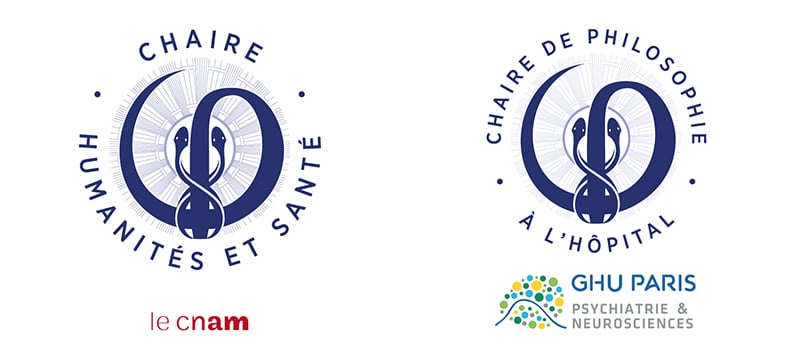[vc_row][vc_column width=”1/6″][/vc_column][vc_column width=”2/3″][vc_column_text]
Lecture
“Introduction to Philosophy in Hospitals: Concepts and Texts”
Syllabus
Cynthia Fleury – Frédéric Worms
Because the questions raised by hospital – arising in hospitals – touch on many different philosophical problems, philosophy must not only ask them, but must also come to the hospital to pose them and share them. Questions about life and death, questions about care, but also institutional questions, and more broadly political questions concerning the city and even the world. The hospital is not just a setting for life and sometimes death, or for treatment as a singular relationship. Like so many other spaces in public services and the private world, it is also subject to organisational efficiency procedures that produce – as a corollary to expected performance – significant dysfunctions in terms of burnout and the reification of carers and patients. For better or for worse. We must therefore consider these issues. For the better and against the worse. And for everyone in the hospital, patients and carers, relatives and caregivers, subjects and citizens. This is the aim of this introductory course, using the concepts and texts that will help you to navigate these questions. By entering the hospital, philosophy reminds us of the need to think about care in a holistic way, and that the very first hospital feature – before any more technical service – is the intersubjective and interrelational quality that is created between the many people who experience its very particular space/time. Care is a constitutive aspect of the subject and of the City.
26 January 2016 / Cynthia Fleury et Frédéric WormsConceptual introductory elements:
- I The existential question?
The question of the sick subject. The holistic and qualitative conception of illness (Canguilhem): a contradiction with the institution of the hospital? - II A philosophy of the hospital?
The patient, the nurse, the doctor, the caregiver, the para-caregiver: roles, status, and function?
The hospital as Hospitality and “a commons” vs. the hospital as an organisational and managerial structure. - III A political problem?
What should be done about the following legacies? What can be said about them, what can be imagined next? Foucault? Deleuze and Guattari? Oury (La Borde)? Basaglia (The institution in negation)? Laing (anti-psychiatry)? Critical Theory (from Adorno to Honneth). These different chapters will be developed in the following sessions.
2 February 2016 / Cynthia Fleury
Continuation of the 26 January session.
- The issue of pain and accident. Relationship between suffering, the Real, the truth, the subject: Philosophy as algodicy (Schopenhauer, Sloterdijk)
Suffering and individuation: the body, its history, its style. - Chronicity of pain
- Suffering and Grief (Freud, Proust, Deleuze)
9 February 2016 / Cynthia Fleury
Continuation of the 2 February session.
On moving the Hospital into Modern Technology, Foucault: “At what point did we begin to consider the hospital as a therapeutic instrument, that is to say, as an instrument of operation in disease, as an instrument capable, by itself and by each of its effects, of treating a patient? ”
16 February 2016 / Frédéric Worms
Plato (Laws: The Free Doctors and Slave Doctors)
8 March 2016 / Frédéric Worms
Rousseau (Emile, or On Education: the necessity and risks of education in care)
15 March 2016
Canguilhem (Writings on medicine: from the vital to the social)
22 March 2016 / Frédéric Worms
Spitz and Bowlby (What is hospitalism?)
Postponed and replaced by Canguilhem – Part 2
29 March 2016 / Frédéric Worms
Goffmann (cf. Asylums: Essays on the Social Situation of Mental Patients and Other Inmates)
Postponed and replaced by Ricœur
4 April 2016 / Cynthia Fleury
The body in democracy: performance, vulnerability, concern and neglect of the body.
New vulnerabilities and hardships
The extension of life, old age
12 April 2016 / Cynthia Fleury
Dying in a democracy
Societal and ethical developments in the end-of-life question
The issue of euthanasia and palliative care
3 May 2016 / Cynthia Fleury
Self-knowledge in ancient times: Plato, Epictetus, Seneca, Marcus Aurelius, Plotinus. As seen by Hadot and Vernant
10 May 2016 / Cynthia Fleury
The lessons of anti-psychiatry (from Laing to Basaglia)
17 May 2016 / Cynthia Fleury
Anti-psychiatry, part 2: Laing, Cooper, and Mary Barnes.
24 May 2016 / Cynthia Fleury and Frédéric Worms
Closing session – Winnicott and Jung: individuation, persona, shadow and false self
31 May 2016 / Cynthia Fleury
Boundaries: Emergency, Critical Care, Alzheimer’s
[/vc_column_text][/vc_column][vc_column width=”1/6″][/vc_column][/vc_row]
